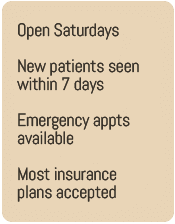Raising Awareness: Lung Cancer Facts, Prevention & Treatment
Bringing prevention to the forefront during Lung Cancer Awareness Month
Lung cancer is by far the leading cause of cancer deaths among both men and women. According to The American Cancer Society, each year, more people die from lung cancer than from colon, breast and prostate cancers combined. Fortunately, with research and prevention, the number of people diagnosed with lung cancer each year has slowly been decreasing since the 1980s. However, the American Cancer Society still predicts that by the end of 2019, 14 percent of diagnosed cancers will be lung cancer.
With so many people suffering from lung cancer, November has been deemed as National Lung Cancer Awareness Month. During these 30 days, thousands of lung cancer organizations and charities around the world strive to increase awareness of lung cancer. Their express purpose is to inform the world of this disease and raise funds to perform life-saving research.
To do our part in raising awareness now and throughout the year, Personalized Hematology-Oncology shares these facts about this far too common disease.
__________________________________________________________________________
The #1 way to avoid lung cancer?
Avoid second-hand smoke.
__________________________________________________________________________
Lung cancer prevention
While there are risk factors you can’t avoid, such as having a family history of lung cancer, there are ways you can take control. Avoiding smoking in all forms, including cigarettes, cigars, pipe and vapes. Also avoid second-hand smoke, as this is the number one way to lower your risk of lung cancer.
Researchers have discovered that tobacco smoking causes about 9 out of 10 cases of lung cancer in men and nearly 8 out of 10 cases of lung cancer in women. Studies also show that smoking low tar or low nicotine cigarettes does not lower the risk of lung cancer. People who smoke have around 20 times the risk of lung cancer compared to those who do not smoke.
Lung cancer symptoms
Many people with lung cancer won’t experience symptoms until the disease is in the later stages. While symptoms vary from person to person, they may include:
- Persistent cough that may produce blood
- Shortness of breath or wheezing
- Pain in the chest, back or shoulders that worsens during everyday activities
- Unexplained weight loss
- Loss of appetite
- Feeling tired or weak
- Bone pain
- Swelling in the face, arms or neck
- Headaches
- Jaundice
Because these symptoms are similar to other diagnoses such as allergies or a cold, many lung cancer cases go undiagnosed for a long time. See your doctor immediately if you notice any of these symptoms.
Lung cancer diagnosis
A doctor can perform several tests to determine if lung cancer is present, including a sputum cytology, CT or PET imaging, and taking a tissue sample.
Sputum cytology is used when you have a cough and are producing sputum, a mixture of saliva and mucus. Looking at sputum under the microscope can reveal the presence of lung cancer cells. Imaging tests may reveal abnormal masses, nodules or small lesions in the lungs. A tissue sample, or biopsy, is done by removing and testing a sample of abnormal cells. The doctor can remove the tissue through a bronchoscopy, mediastinoscopy or a needle biopsy.
For those who are diagnosed and treated for lung cancer, the five-year survival rate is 56 percent for cases detected when the cancer is still localized, or within the lungs. However, only 16 percent of all lung cancer cases are diagnosed at an early stage. For tumors that have spread to other organs, the five-year survival rate is only 5 percent.
Lung cancer treatment
New forms of treatments are researched every year. Current therapies for patients who have lung cancer include surgery, chemotherapy, radiation therapy and targeted therapy. These therapies are used based on the stage at which the cancer is detected and depending upon the type of lung cancer, namely non-small-cell lung cancer versus small-cell lung cancer.
Gene expression profiling
Gene expression profiling is an advanced method of treating non-small-cell lung cancer. This approach helps doctors decipher the complexities of the cancer, allowing for a personalized treatment plan for each individual patient. Genome science allows for optimal, safe and cost-effective chemotherapy to be administered, while ensuring the cancer patient is not under treated or over treated.
Finding a genome oncologist in the Triangle
Targeted genome therapy is a specialization within the oncology field, and not all oncologists offer it. At Personalized Hematology-Oncology, our oncologists are researchers in the field of gene expression profiling. We specialize in molecular targeted therapies and chemotherapy and are experienced in treating late-stage cancers of all types, including lung cancer. Contact us to learn more about our expertise in comprehensive cancer care.





